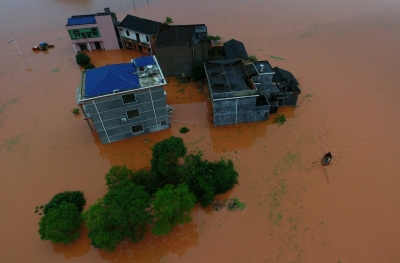Climatic conditions such as warming and increase in humidity strongly affect water-borne diseases and diseases transmitted through insects

By 2030 climate change is expected to cause approximately 250 000 additional deaths per year, from malnutrition, malaria, diarrhoea and heat stress. These data were presented at the World Health Organization (WHO) conference dedicated to impact of climate change on health, the UN official website says.
Climatic conditions such as warming and increase in humidity strongly affect water-borne diseases and diseases transmitted through insects.
Rising temperatures and variable precipitation are likely to decrease the production of staple foods and this will increase the prevalence of malnutrition and undernutrition.
Pollen and other aeroallergen levels are also higher in extreme heat. These can trigger asthma, which affects around 300 million people.
Floods contaminate freshwater supplies and heighten the risk of water-borne diseases.
According to Paris Climate Agreement adopted in December 2015, measures are planned on the adaptation to climate changes, including plans on population health protection from more serious consequences of climate change.
Suggestions
 More Crops Per Drop: Conserving Armenia’s Water Resources Amidst a Changing Climate
More Crops Per Drop: Conserving Armenia’s Water Resources Amidst a Changing Climate
 Hydrological regime of Lake Sevan on August 22-28 (2022)
Hydrological regime of Lake Sevan on August 22-28 (2022)
 INEXHAUSTIBLE RESOURCE. film about water waste in Armenia
INEXHAUSTIBLE RESOURCE. film about water waste in Armenia
 “Lydian Armenia” CJSC has used the water of Lake Sevan for technical purposes. Artur Grigoryan
“Lydian Armenia” CJSC has used the water of Lake Sevan for technical purposes. Artur Grigoryan
 ArmForest SNCO Director Considers It Necessary To Increase Legal Timber Storage Volumes
ArmForest SNCO Director Considers It Necessary To Increase Legal Timber Storage Volumes












